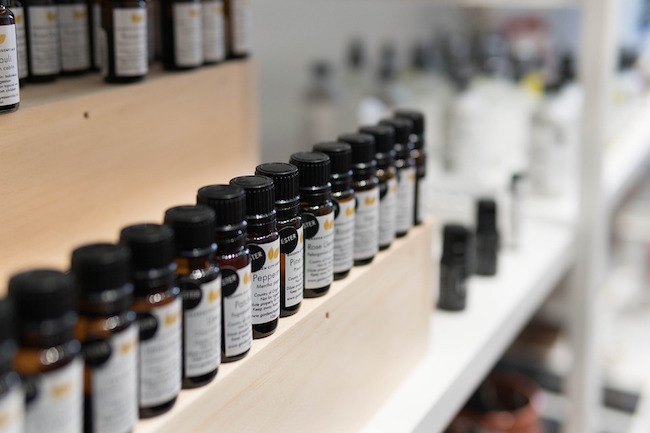Yet another study confirms the holistic approach to health: Diet cures disease, NOT drugs
TDC Note – Through my personal research and action I am finding this to be true. The Daily Cocktail, which I consume 4-5 days a week, is improving my health in ways that no practitioner of “modern medicine” could accomplish no matter how “drugs” were prescribed.
####
A groundbreaking study, conducted by a doctor at Seattle Children’s Hospital and published in the Journal of Clinical Gastroenterology has demonstrated for the first time that dietary intervention alonecan cause complete remission of symptoms in many cases of inflammatory bowel disease (IBD).
“For decades or longer, medicine has said diet doesn’t matter, that it doesn’t impact disease,” researcher and gastroenterologist David Suskind said. “Now we know that diet does have an impact, a strong impact. It works, and now there’s evidence.” (RELATED: Learn more about nutrition for disease prevention at Prevention.news)
IBD is a cluster of related diseases characterized by pathological inflammation of the digestive tract. The two most common forms are Crohn’s disease and ulcerative colitis (UC). The causes of IBD are unknown, but it is believed to arise from an interaction of genetic factors, abnormal composition of the gut microbiome, and immune dysfunction. It is typically treated with steroids or immune-suppressing drugs, both of which can result in lifelong side effects.
Neither treatment addresses the underlying causes of the condition. The new study consisted of an analysis of a small group of pediatric Crohn’s and UC patients at Suskind’s clinic whose parents consented to their treatment solely with an experimental dietary treatment for IBD.
For 12 weeks, participants were placed on a diet called the specific carbohydrate diet (SCD), which is designed as a nutritionally balanced diet based around natural, nutrient-rich foods such as fruits, vegetables, meat, and nuts, but does not contain any grains, dairy, sugars (except honey) or processed foods. No other treatment was given. (RELATED: Learn more about the healing properties of natural foods at Fresh.news)
At the end of the study period, eight of the 10 patients were in remission, showing no further IBD symptoms. “This changes the paradigm for how we may choose to treat children with inflammatory bowel disease,” Suskind said.
More studies will be needed before the medical establishment is willing to embrace the SCD as a treatment for IBD. But no further proof is needed for Nicole Kittelson, whose daughter Adelynne was diagnosed with Crohn’s at age eight. At the time, Suskind offered a variety of treatments, and Kittelson opted for the SCD.
“Today, Adelynne has been in clinical remission for more than two years,” Kittelson said. “She’s a healthy, happy and thriving 11-year-old girl. “I can’t believe how far we’ve come. When we first walked into Seattle Children’s, she was an 8-year-old girl who was barely heavier than our 4-year-old. Now, she’s growing and foods are no longer an enemy.”
Kittelson says that adjusting to the SCD was hard at first, but that following the diet is now relatively effortless and automatic. “Her lunch doesn’t look much different than other kids at school,” said Kittelson. “There are so many options out there. We haven’t felt like we’ve had to sacrifice. We’ve even adjusted holiday traditions to fit into our new lifestyle. Instead of candy for special occasions, we swap them for other things.”
The implications of Suskind’s findings are potentially far reaching. The study is the first to demonstrate clinically that dietary change alone can be a safe and effective method for treating IBD. “Each person’s disease is unique, just as each person is unique,” Suskind said. “SCD is another tool in our tool belt to help treat these patients. It may not be the best treatment option for everyone, but it is an effective treatment for those who wish to try a dietary therapy.”
If further, placebo-controlled studies back up the effectiveness of the SCD, it may lead to treatments for other chronic inflammatory conditions — which includes most chronic diseases that plague modern civilization, including cancer and heart disease.
Because foods are more complex than drugs and don’t make profit for drug companies, medical research has been slow to research dietary intervention. Perhaps the new study will help that pattern start to change. “I don’t have the words to thank Dr. Suskind for what he did for us,” Kittelson said. “To have a doctor that is willing to explore other options and is willing to try new things, it’s incredible.”
by: David Gutierrez




